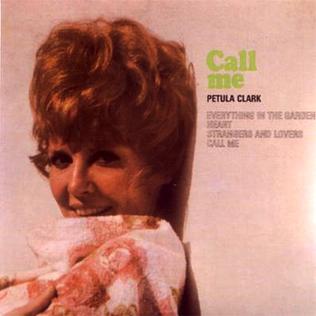Piano Sheets > Tony Hatch Sheet Music > Call Me (ver. 1) Piano Sheet
Call Me (ver. 1) by Tony Hatch - Piano Sheets and Free Sheet Music

About the Song
"Call Me" is a song composed by Tony Hatch for Petula Clark which became an easy listening standard via a hit version by Chris Montez.
"Call Me" first appeared as the title cut on a Petula Clark EP released in 1965 by Vogue in the UK. "Call Me" and the three other tracks on the EP: "Heart", "Everything in the Garden" and "Stangers and Lovers" were released in the US as tracks on Clark's I Know A Place album. Tony Hatch (born Anthony Peter Hatch, 30 June 1939, Pinner, Middlesex, England[1]) is an English composer, songwriter, pianist, music arranger, and producer. Allmusic journalist, Richie Unterberger, states "Hatch had success in various segments of the entertainment industry from the 1960s onwards, but he will be best remembered for his work as a producer and songwriter for several British pop and rock stars in the 1960s. As a staff producer at Pye Records, Hatch worked with The Searchers,.
Download this sheet!
About the Artist

Random article
All you need to know about free sheet music The Internet has made it possible for piano enthusiasts to learn how to play piano by using free sheet music available online. There are plenty of websites online, which offer you music notes for playing the piano.
Types of formats
There are various formats available when it comes to online music sheets for the piano. These include GIF, Postscript, finale, graphics interchange, adobe acrobat etc. If you want quick and easy access to sheet music piano then these free websites are the best choice available. Most websites will also have listings based on the genre of music to help you easily select the appropriate category of piano notes.
(More...)
